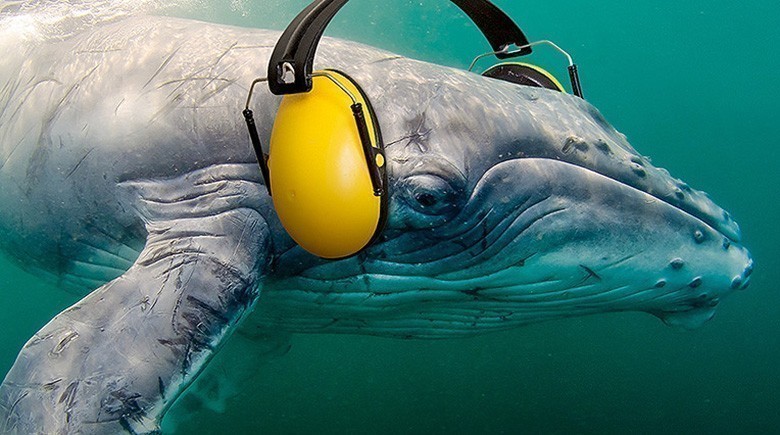La pollution acoustique est moins connue et moins médiatisée que celle des plastiques ou celle des produits chimiques/rejets industriels. Et pourtant! les sons se propagent loin et mieux dans l’eau. L’ouie est le moyen de communication et de localisation le plus utilisé par les mammifères marins: baleines, dauphins, beluga,…L’ouie est aux mammifères marins ce que la vue est à l’homme. Alors le bruit généré par le traffic maritime peut les rendre « aveugle »: communiquer entre eux et se reproduire, repérer ses proies, naviguer et organiser la migration, sont autant de comportements fondamentaux que la pollution acoustique vient modifier voire empêcher. On estime que la pollution acoustique double tous les 10 ans et est un nouveau facteur de mise en danger de ces animaux.

A quoi ressemble l’environnement sonore?
Vous voulez écouter ce que cela donne? Voila une très belle illustration de sons de mammifères pour vous aider à les identifier la prochaine fois que vous plongez. Bon, OK, c’est en Alaska! Je vous conseille d’écouter le chant du Beluga, comparé parfois au « canari des mers ».

Pour les plus scientifiques d’entre vous, une étude approfondie fait la synthèse bibliographique de l’impact du traffic maritime sur les Cétacés. Ici.
En marge de ce petit blog sur l’acoustique, une autre initiative passionnante sur l’étude des cétacées est menée par une petite association Américaine, OceanAlliance: grâce à un drone, les scientifiques vont pouvoir analyser le souffle d’une baleine à bosse. Le blog de l’expédition est ici.
Le COVID-19 bénéfique pour la faune marine
Le ralentissement de l’économie du au COVID-19 a permis de réduire cette pollution acoustique significativement: quel silence, quel repos! On retrouve des mammifères marins , à proximité des ports habituellement désertés. Les collisions avec des navires, en particulier dans le secteur du sanctuaire « Pelagos », le parc marin off-shore de méditerranée, sont en nette diminution. Tous les parcs nationaux marins observent le retour de certaines espèces dans leurs eaux: l’absence de l’homme et de ses bateaux libèrent de l’espace à la nature et apporte du calme. Il n’aura suffit que d’une paire de semaines pour que la nature reprenne ses droits: cela permet de rester confiant sur l’avenir. Nous pouvons encore rattraper nos erreurs et effacer les cicatrices du développement industriel non contrôlé.




Comments are closed